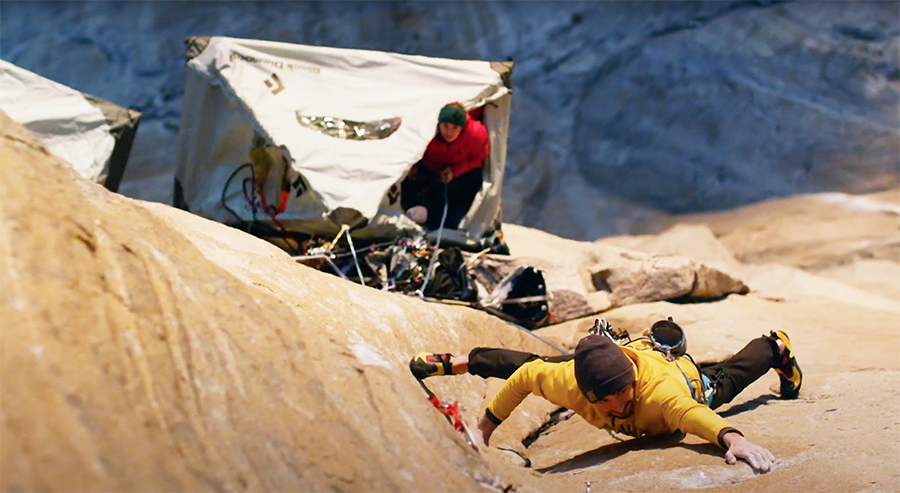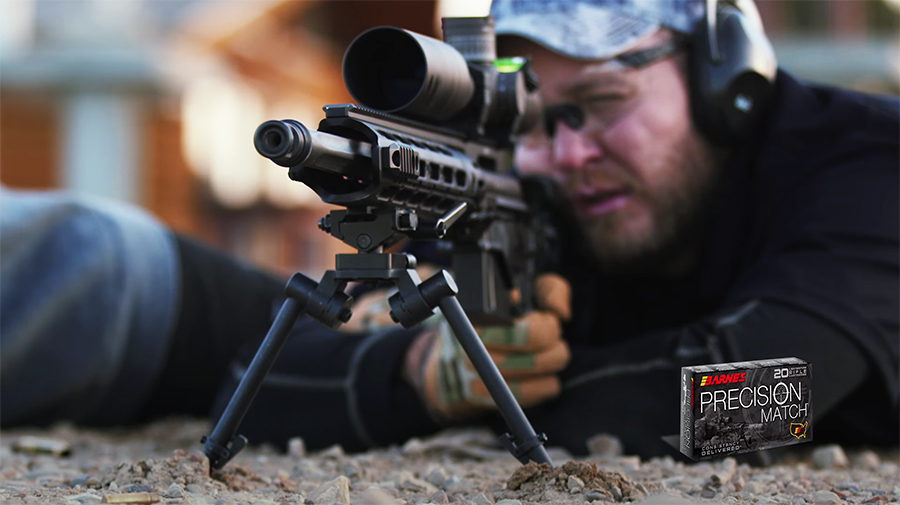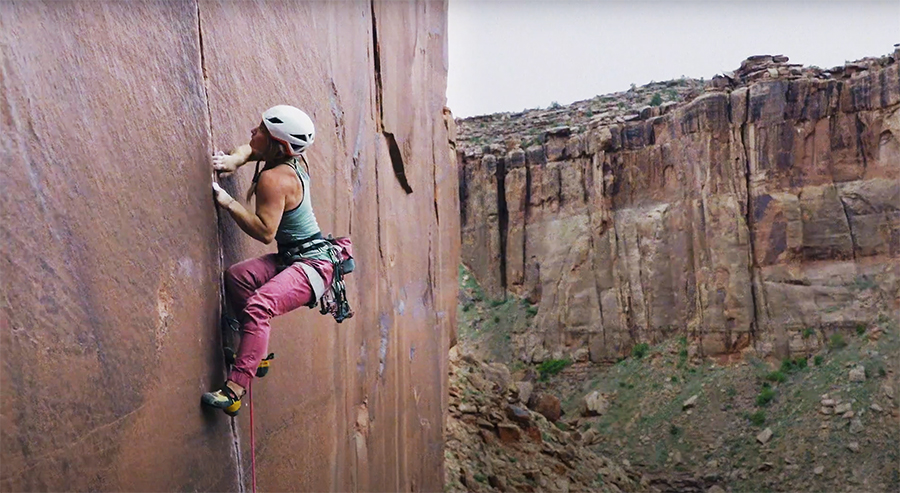Clarus Corp. reported total sales were up 24.4 percent in the fourth quarter ended December 31 on the back of the Sierra Bullets brand’s accelerating growth and continued recovery of Black Diamond. The gains came despite continued supply chain constraints holding back gains in both segments.
Adjusted EBITDA in the quarter grew 56.2 percent to $11 million.
Results just topped updated guidance provided on February 1 that called for sales to increase 23 percent and adjusted EBITDA to expand 50 percent. Before the updated guidance, Clarus predicted fourth-quarter sales would climb 11 percent to 13 percent.
“Our momentum from the third quarter carried through to the end of the year, demonstrating the strength of our brand portfolio and the resilience of our ‘super-fan’ brand strategy,” said Clarus President John Walbrecht.
Black Diamond Sees Significant Incremental Improvement
Black Diamond (BD) sales continued to improve and ended flat to the prior year despite a lackluster winter season and continued negative impacts associated with COVID-19. The performance marked a bounce back from a decline of 8 percent in the third quarter and 47 percent in the second quarter.
“Participation in outdoor activities has broadly increased to mid-pandemic-related restrictions, and this trend has shown no sign of stopping in 2021,” said Walbrecht on a conference call with analysts.
He noted that the improved sales rate came despite COVID-19-related supply chain disruptions that have challenged the speed and the efficiency with which brand operators across industries can fulfill their orders.
“Despite these challenges, we have worked hard to deepen our relationships with key retail partners and global suppliers, which are reflected in our results today,” said Walbrecht. “Our super-fan brand strategy has also benefited us in this regard as we believe suppliers will form long-lasting and productive partnerships with the brands that poised for long-term performance.”
Apparel was BD’s highest growing product category in Q4 with 19 percent revenue growth over the prior-year quarter. Walbrecht believes the brand’s decision not to aggressively promote products at the onset of the pandemic strengthened its long-term competitive position to benefit the apparel category.
By category in the fourth quarter, Climb was down 15 percent; Mountain declined 5 percent; and Ski was up 3 percent. Climb, Backcountry Ski and associated products such as headlamps and trekking poles saw strong momentum.
For 2020, BD’s sales were down 14 percent due to the impacts of the COVID-19-related retail demand freeze in the first half of the year.

Looking ahead, Walbrecht said Black Diamond continues to encounter unforeseen challenges at its raw materials and component levels from supply chain challenges tied to COVID-19 that caused the brand not to fully leverage dedicated capacity at its vendor partners. He added, “Compounding this is the well-documented logistic challenges associated with the geographic imbalance in container availability and the current port congestion. These dynamics have caused us to experience a significant delay in pre-planned product availability with expedited air freight as an onsetting lever, which comes at much higher levels of costs.”
Regardless, Black Diamond sales are expected to increase 17 percent in 2021, to $200 million.
Walbrecht noted that in 2020, BD was recognized with over 100 product awards, and the innovation is expected to help drive the brand’s recent momentum. He said, “We expect the trends in outdoor participation to continue, including an acceleration in our apparel business, further adoption of lighting and trekking poll lines, expanded distribution with our gloves, and a strong backcountry season providing additional upside to our growing ski category.”
Bullet And Ammunition Segment Surges 167 Percent
In the Sierra business, sales reached $13.5 million in the quarter, up 167 percent from the prior-year quarter. The gains reflected broad-based sales growth across both bullets and ammunition across channels. Said Walbrecht, “We continue to experience strong domestic tailwinds ahead of and following the U.S. election as well as increased participation in outdoor hunting and indoor shooting ranges.”
Similar to fulfillment challenges within Black Diamond, the bullet and ammunition category was impacted by industrywide supply shortages due to challenges securing enough components to keep manufacturing on pace with the heightened demand.
Clarus’ bullet and ammunition business will look to leverage relationships with retail partners and increase production at its recently-acquired Barnes ammunition facility.

Barnes Bullets has outperformed expectations since being acquired in early October. Said Walbrecht, “We believe that this further validates that Barnes, with its rich history of product innovation and strong brand awareness among the core enthusiast, is what we seek with super-fan brands.”
He said Clarus has seen financial and operational synergies within its integration efforts. Relationships, processes and ordering cycles that were severed when Remington Outdoor, the prior owner of Barnes, entered bankruptcy were reestablished.
Walbrecht added that Barnes’ technology is expected to help improve Clarus’s overall production capabilities and expand current offerings to include a lead-free, all-copper line. The combination is further expected to facilitate future expansion into additional product categories and accelerate growth across bullets and ammunition overall. He said, “We are quickly filling the order book of 2021, and we continue to expect that this combined platform has a long-term runway to generate $100 million in sales over time with a 25 percent to 30 percent adjusted EBITDA margin and high free cash flow conversion.”
For 2021, Sierra and Barnes combined are expected to increase revenue by 52 percent to $80 million.
Adjusted Earnings Climb 64 Percent In Fourth Quarter
Companywide, net income in the quarter was $7.1 million, or 22 cents per share, compared to $12.4 million, or 40 cents, a year ago. The fourth quarter of 2019 included a $10.4 million benefit associated with the partial release of the company’s valuation allowance on its deferred tax assets. Adjusted net income before non‐cash items in the quarter increased 64 percent to $11.2 million, or 34 cents.
Gross margin was unchanged at 35.5 percent. Improvements in product mix, low levels of discounting and foreign exchange benefits offset unfavorable impacts on the company’s supply chain and logistics due to the COVID-19 pandemic. Excluding a fair value inventory step-up associated with the Barnes acquisition, adjusted gross margin increased 50 basis points to 36.0 percent in the fourth quarter.
SG&A expenses in the fourth quarter were $20.9 million compared to $17.5 million in the year‐ago quarter, primarily due to the inclusion of Barnes, which contributed $1.7 million, and an increase in stock-based compensation given Clarus’ stock price appreciation during the quarter.
For the year, sales declined 2.4 percent to $224.0 million. Net income was $5.5 million, or 18 cents a share, compared to $19.0 million, or 61 cents, in 2019. Adjusted net income in 2020, which excludes the non‐cash items and transaction costs, increased 3 percent to $21.9 million, or 70 cents. Adjusted EBITDA was down slightly to $22.4 million compared to $22.7 million in 2019.
For 2021, Clarus’ sales are projected to grow approximately 25 percent to $280 million compared to 2020. Adjusted EBITDA is expected to increase 56 percent to $35 million.
Photos courtesy Black Diamond, Sierra Bullets
















